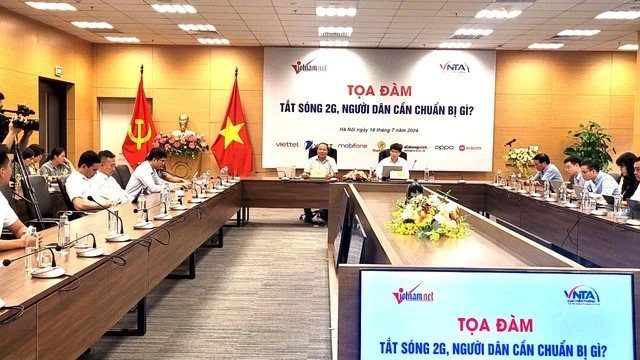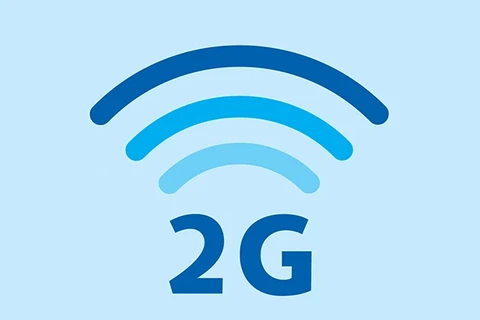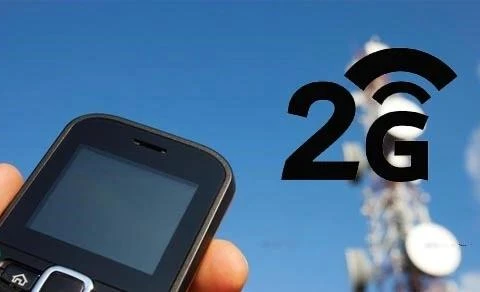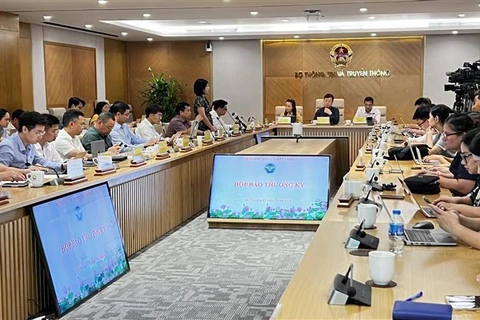
Hanoi (VNS/VNA) - More than 11 million 2G-only mobile subscribers will be turned off with the deadline being September 16.
The VietNamNet online newspaper coordinated with the Vietnam Telecommunications Authority (VNTA) under the Ministry of Information and Communications (MIC) to organise a discussion on turning off 2G waves on July 18.
According to the roadmap to end the 2G mobile network in Vietnam, issued by the MIC, no service will be provided to subscriber terminals that only support 2G standards from September 16.
VNTA Deputy Director Nguyen Phong Nha said that the ministry determined that 2G and 3G technologies were both old technologies, but 2G was the older technology.
Most mobile businesses' 2G network equipment has been completely depreciated. Most use outdated equipment that is energy-consuming and low-efficiency, and some devices no longer have a supply of replacements or repairs.
Therefore, the policy of stopping 2G technology has been agreed and expressed in the 900 MHz band planning circular.
The VNTA deputy director said that the cessation of 2G technology would be in two specific phases.
Phase 1 is in September 2024, stopping serving subscribers using phones using only 2G technology (2G only). Phase 2 is September 2026, stopping the 2G system.
Currently, businesses rely on their operational realities to gradually shut down 2G stations in areas with no traffic generated over the 2G network. The end of 3G technology will be implemented in September 2028.
VNTA statistics show that more than 11 million 2G-only subscribers were in the country as of May this year, accounting for about 9% of the total number of mobile subscribers nationwide.
Currently, as part of the plan to phase out 2G technology, mobile enterprises have reported an expected reduction of 2G-only subscriptions to zero, or less than 5% of the total mobile subscriptions, by September.
To promote the process of turning off the waves, the Ministry of Information and Communications is developing a Decree guiding the Telecommunications Law to deploy support through the public telecommunications fund.
The Ministry of Information and Communications has directed mobile telecommunications businesses, in addition to implementing solutions to support 2G only subscribers, to develop specific communication plans for remote, border and island areas, individualise communication work and support forms to suit subscribers from poor and near-poor households who make the transition to using 4G technology phones or higher.
In addition, the ministry has also worked with the people's committees of some provinces, directing the departments of information and communications of provinces and cities to advise the leaders of people's committees of provinces and cities to use legal sources in the localities to support users, especially vulnerable users.
Regarding concerns that this conversion route may be blocked when customers make transactions on the last day, a Vinaphone representative affirmed that this situation would not happen, because people simply need to change their phone or SIM to be able to switch.
Similarly, Nguyen Trong Tinh, Deputy General Director of Viettel Telecom, affirmed that his network would deploy a conversion approach from many channels, so there was no need to worry about transaction congestion./.






















